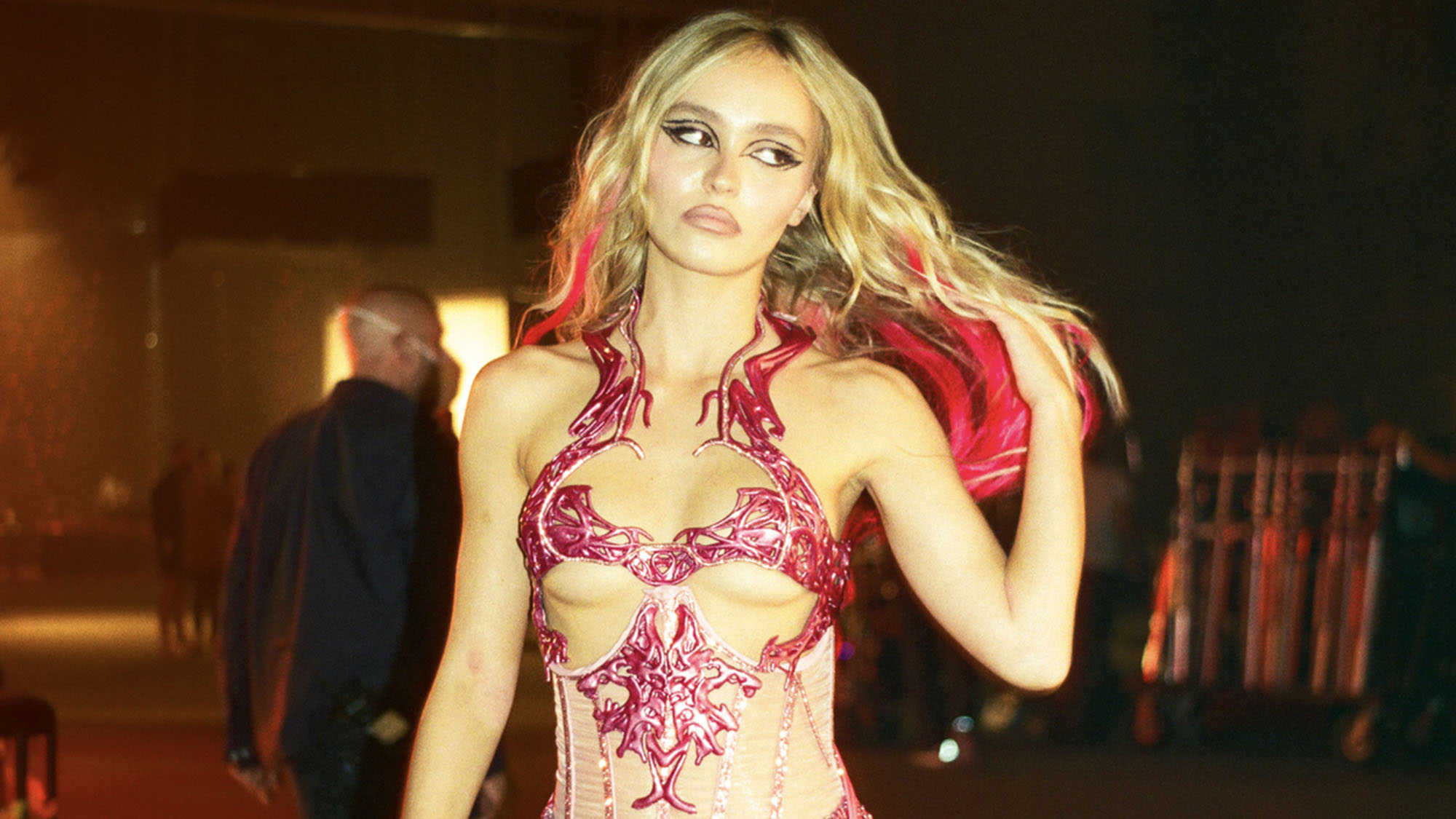“You should be having way more fun,” says Tedros Tedros – a character so bad they named him twice, presumably. He’s the slimily charismatic club manager, cult leader and record producer played by Abel ‘The Weeknd’ Tesfaye in HBO’s next expected hit show, The Idol. Insisting to pop star protagonist Jocelyn (Lily-Rose Depp) that she should be enjoying her relatively privileged role in the media ecosystem, the newly-minted actor-producer inadvertently addresses his audience so far: a crowd of Cannes-accredited journalists thoroughly unimpressed with his and Euphoria creator Sam Levinson’s self-claimed “sick and twisted” vision.
By all rights, their glitzy show is a well-designed visual spectacle, featuring rich 35mm cinematography from Bones and All’s Arseni Khachaturan and a series of excellent underboob-bearing outfits courtesy of costume designer Natasha Newman-Thomas. But The Idol more than earns its putrid Rotten Tomatoes score in the first 106 minutes to which critics have been privy, presenting a grimly cynical, at times bizarre view of stardom and one wretched woman’s inner life.
Each day, Lily-Rose’s Jocelyn wakes up in her mausoleum of a sprawling California mansion, topless and wearing a thong in lieu of any kind of plausible pyjamas. Clearly miserable, she clutches a mug of coffee prepared for her by Leia, her highly-strung assistant and best friend (played to comedic perfection by Rachel Sennott), steeling herself against the coming onslaught of the day. Her career is in a dip due to the mental fallout from a recent personal tragedy, but her current management team (comprising Da’Vine Joy Randolph, Hank Azaria, Dan Levy, Jane Adams and Troye Sivan) is overly-invested in her comeback, and keen to recoup their losses no matter the physical or emotional cost to Jocelyn. Jocelyn, for her part, is happy to dance for them until her feet bleed: more character sketch than character, her inner life is made up almost exclusively of overwork and unsuccessful masturbation.
Unfortunately, as with his 2021 movie Malcolm & Marie, Levinson’s vexing cultural commentary seems to inform the majority of the show’s plot and dialogue. The series begins with a conceit that reads as a snide rebuttal of the negative testimonies that have plagued his productions over the past few years: Jocelyn just wants to get her nips out for a shoot to promote her new single “World-Class Sinner”, but the wet-blanket intimacy coordinator on set won’t let her without a 48-hour notice period. Eventually, her co-manager bribes an assistant to barricade him inside a bathroom. Problem solved! When Jocelyn finds herself at the centre of an online revenge porn scandal, we are treated to a cringeworthy approximation of Twitter discourse (“They’re calling her the human cumsock!” laments Eli Roth, playing a Live Nation rep with anger management issues).
SUBSCRIBE TO I-D NEWSFLASH. A WEEKLY NEWSLETTER DELIVERED TO YOUR INBOX ON FRIDAYS.
Though Leia warns Jocelyn against Tedros and his “rapey vibes”, she takes up with him anyway, believing that he holds the key to elevating her flailing career. The sex scenes that transpire between the pair aren’t unnecessary as much as they are simply unpleasant, involving cliches from hetero porn and logistically-questionable dirty talk: “I want to grab your ass while you suffocate on my cock,” says Tedros, arousing approximately no one with his long rat tail and sweeping black trench coat he never takes off, based on the NXIVM cult leader.
While there isn’t anything wrong with no plot just vibes cinema, The Idol is a miserabilist enterprise with precious little to say about the systems it purports to expose. Of course, this may change as the series goes on, but the repetition of plot beats in both Jocelyn’s gruelling work life and depressing private life doesn’t inspire much hope for the remaining four episodes. There’s certainly something here for audiences who love Levinson’s Euphoria, or even just a good old hate-watch. But when entertainment is increasingly something that serves as an endurance test for how much suffering audiences are willing to stomach – from an industry that so frequently condones misogyny and sexual abuse – it’s no wonder that more and more are electing to switch it off.
